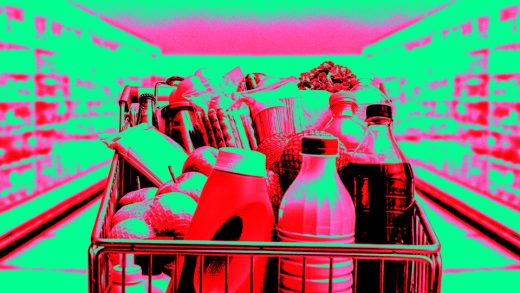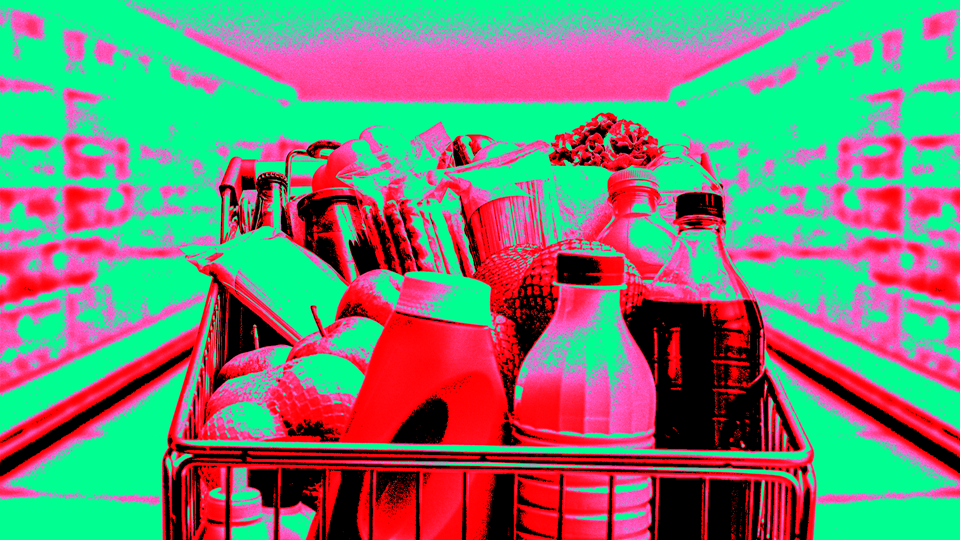Is the Kroger-Albertsons merger really doomed? The deal’s chances, and what it means for consumers, explained
Is the Kroger-Albertsons merger really doomed? The deal’s chances, and what it means for consumers, explained
As the FTC’s antitrust lawsuit makes its way through an Oregon court, an expert discusses why the ruling may surprise you.
A weekslong court battle is playing out in Oregon right now that could determine the future of your grocery shopping—with one side arguing the largest proposed supermarket merger in U.S. history will drive up prices, and the other side assuring it will benefit consumers.
Next month marks two years since Kroger announced it would acquire Albertsons in a $24.6 billion merger. But that deal has been waylaid since February, when the Federal Trade Commission sued to block the merger on the grounds that it’s anticompetitive. Kroger and Albertsons are the two largest U.S. grocery store chains, respectively.
Now the deal’s fate is in the hands of a federal court in Portland, and will likely be determined by one woman: U.S. District Court Judge Adrienne Nelson. She could decide whether to grant a preliminary injunction or rule immediately after the hearing wraps up.
During court proceedings last week, the CEOs of Kroger and Albertsons testified that the merger would lead to lower prices for consumers. But the FTC’s position is that the deal would “eliminate fierce competition” between the rivals—leading to higher prices for shoppers.
Most consumers probably won’t see any meaningful change while grocery shopping if the deal ultimately prevails, although those living in areas with few grocery store options may be more materially impacted, Arun Sundaram, a senior equity research analyst at CFRA Research, tells Fast Company. He adds that Kroger and Albertsons want to merge to better compete with a growing number of retailers that also sell groceries, including Walmart, Amazon, Costco, Target, and various dollar stores.
Still, the optics of the proposed merger are problematic given the surge in food prices in recent years. “It’s a very tough time to be trying to merge in the grocery space—it’s a tough time to sell the case,” Sundaram says.
Skepticism in the stock market
Another group that’s not yet sold? Stock market investors. Kroger agreed to buy Albertsons for $34.10 per share, which included a $6.85 special dividend. But Albertsons shares are now trading at a “meaningful discount” to the deal’s terms, notching a three-year low of $17.94 earlier this week.
“That’s investors telling us the deal might not go through,” Sundaram says.
CFRA Research, meanwhile, puts the probability of a successful merger at 20%. “It’s more likely than not the judge will rule this is an anticompetitive merger and will block the deal,” Sundaram says.
Trying to predict the outcome of the trial means taking into account everything that’s said during the testimony—in addition to things that have so far gone unsaid, namely, which way Nelson is likely to lean. She was nominated to the federal district court in 2022 by President Joe Biden, and there are political undertones to the trial, particularly given the November election.
The FTC’s case
When the FTC filed suit to block the merger, it was joined by the attorneys general in eight states and Washington, D.C. Commissioners are appointed by the sitting president, which is why the Biden administration is given the credit (or blame) for delaying the Kroger-Albertsons deal.
The FTC’s challenge to the acquisition primarily hangs on the amount of overlap between the two companies, with both currently operating stores in 30-plus states. The commission outlined that the merger would harm consumers by eliminating competition on prices and quality while also harming the largely unionized workforce of both companies, who would lose leverage for negotiating better employment terms.
In an effort to sweeten the deal for antitrust approval, Kroger and Albertsons proposed to sell hundreds of stores and several brands to C&S Wholesale Grocers. But once again, the FTC is skeptical, noting the divesture proposal is a “hodgepodge” of stores that’s been “cobbled together.”
The grocers’ case
But there may be hope yet that the deal could go through, which underscores CFRA’s 20% probability. “There’s a chance that the government will take a more forward-looking view of the merger,” Sundaram notes.
The grocers are arguing they’ve been losing market share for some time and that puts them at a competitive disadvantage. Walmart actually sells more groceries than any other company in the U.S., accounting for more than 20% of the market share by various estimates. A merged Kroger-Albertsons still wouldn’t overtake Walmart’s dominance in this industry.
If the current state of the competitive landscape is considered, taking into account these other types of stores, Sundaram says that could bolster the grocers’ case. The companies, which are unionized, are arguing that they face a competitive disadvantage against Walmart and Amazon, two behemoths gobbling up market share that are largely nonunionized.
Finally, a successful merger will likely depend on there being more assurance that C&S Wholesale Grocers can successfully operate the divested stores.
Can Albertsons survive?
Whatever ultimately happens, the court case has brought to light some information that could irk consumers—and dismay investors.
Executives have been quoted as noting the proposed merger is “basically creating a monopoly” and admitting under oath that they raised prices beyond inflationary levels in the past.
While Kroger will likely emerge mostly unscathed, the same may not be true for Albertsons. Sundaram says that during opening statements, the company’s lawyer made “a strange point” that the survivability of Albertsons may well hinge on the merger.
According to Sundaram, this information took investors by surprise. Albertsons shares have slumped more than 11% since the trial began.
“We thought Albertsons was going just fine,” Sundaram says. “That raised some new questions if the deal doesn’t go through.”
ABOUT THE AUTHOR
Fast Company
(17)



